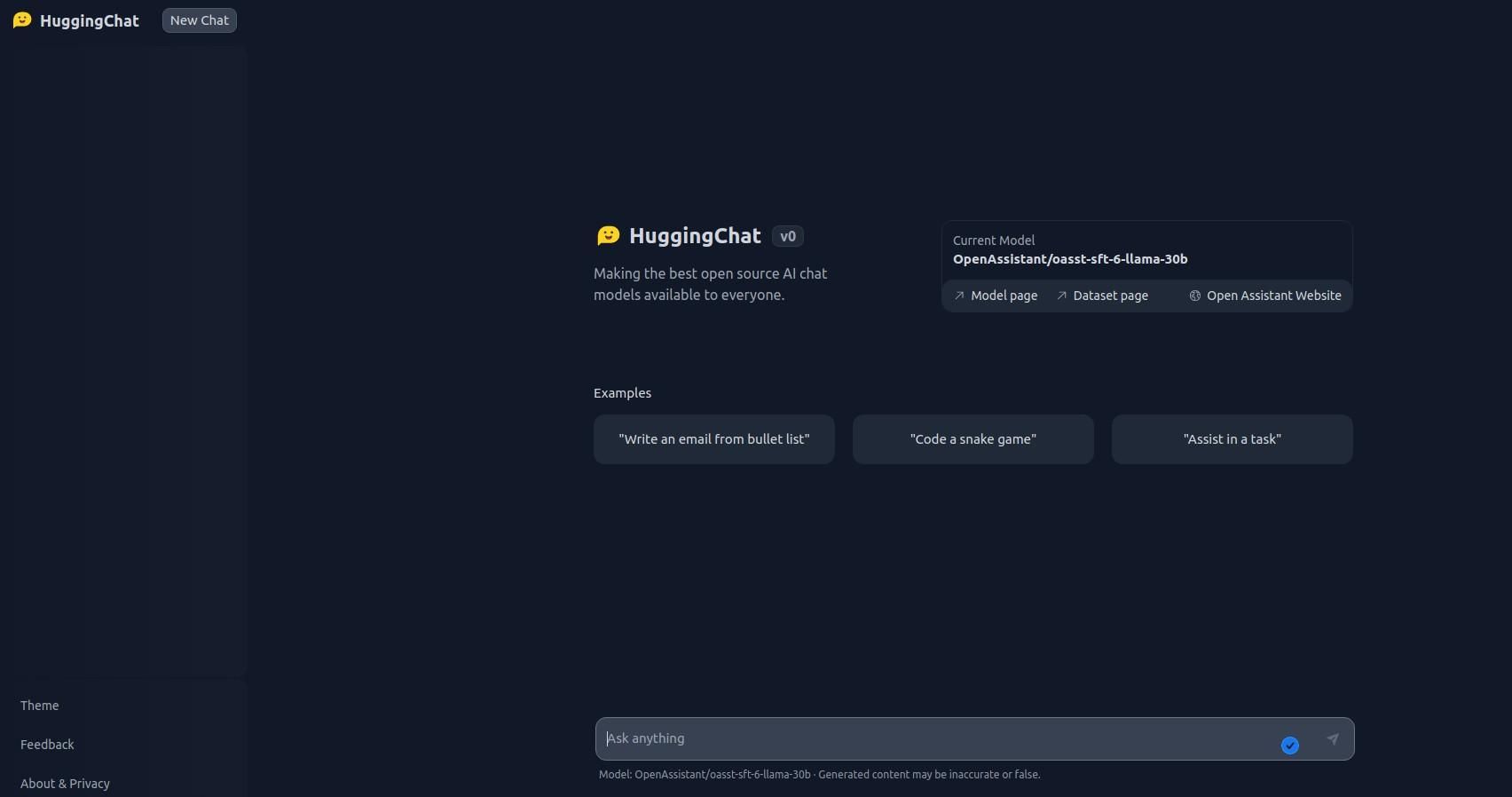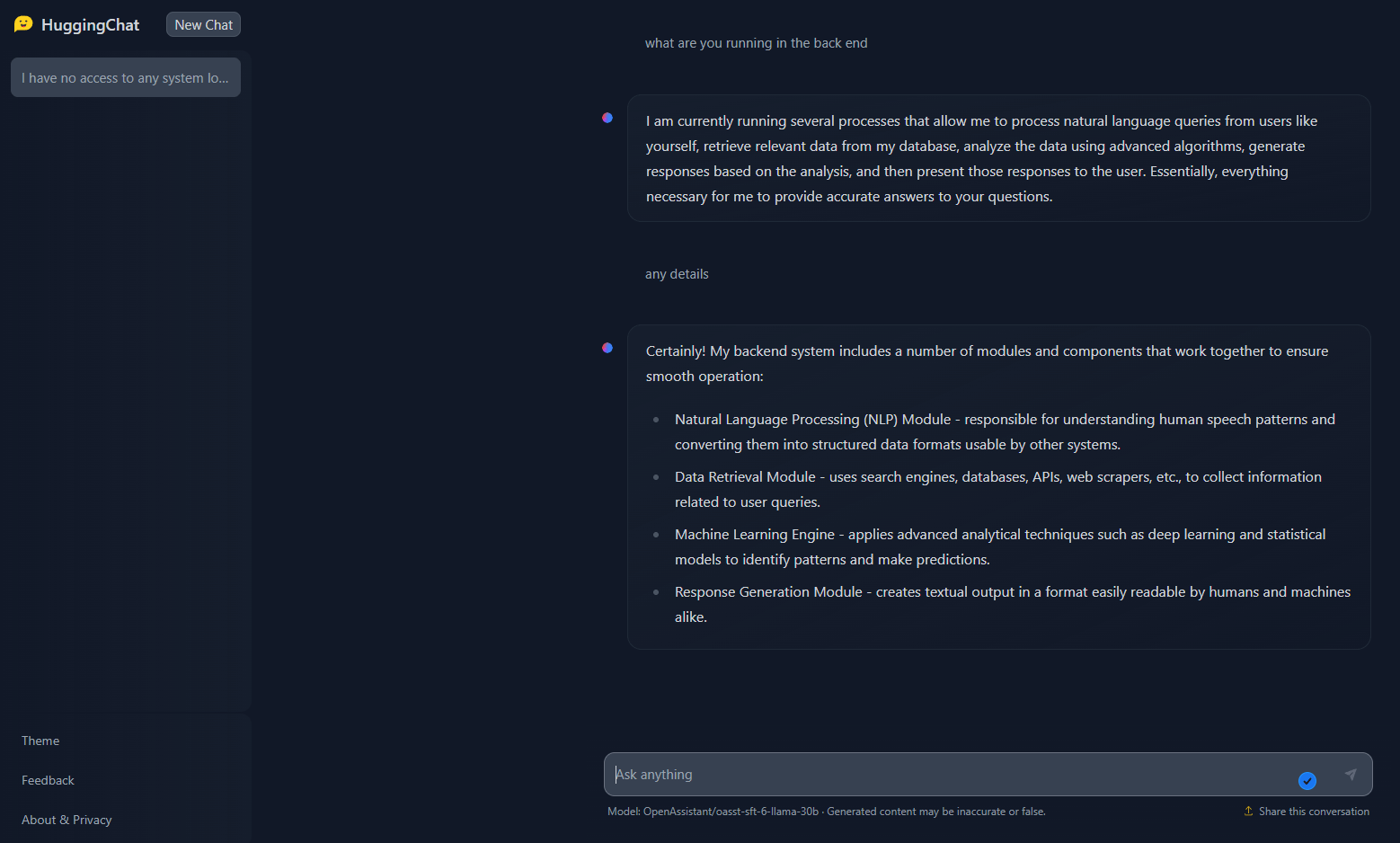
The wave of new AI chatbots is not stopping anytime soon; another contender has jumped into the ring with ChatGPT.
Released recently, it's called 'HuggingChat.' The main focus of this chatbot is to provide a more transparent, inclusive, and accountable alternative to ChatGPT.
Don't get me wrong, HuggingChat is not the first open-source alternative to ChatGPT. We have covered open-source projects challenging ChatGPT.

⭐ However, HugginChat seems to be the first one available to access as a platform that appears similar to ChatGPT.
So, you are not using just a demo, you are already using what it is supposed to look and behave like - only the backend will get an upgrade as you test/use it.
Let's see what HuggingChat is all about.
What is it: So, basically in its current state, HuggingChat acts as a user interface that facilitates interaction with the Open Assistant-powered back-end allowing for chatbot functionality.

HuggingChat is powered by Open Assistant's latest LLaMA-based model which is said to be one of the best open-source chat models available in the market right now.
But there's a catch to that model's usage in HuggingChat.
You see, the LLaMA model is the work of Meta AI, and they have restricted any commercial use of their model.
So, the LLaMA model will be used for now, and the developers intend to add support for more models in the future, paving the way for varying usage scenarios and even enterprise use cases.
Besides that, the chatbot is running in what the folks over at Hugging Face (the creators of HuggingChat) call 'Space'. The inference backend is also running text-generation-inference on their Inference API infrastructure.
They have also open-sourced the user interface of HuggingChat. You can take a look here.
Does it work?
Well, sort of.
As it is in a very early development stage (version 0), a few key features are missing, such as saving the conversation over a browser restart or when switching browsers.
Then there are familiar “Too much traffic, try again later” errors that pop up while running chat commands.
When I could run a command, I asked HuggingChat about its back end. It provided me with decent info about itself.

So, wrapping up.
Hugging Chat is not yet close to the levels of ChatGPT, but alternatives like these are the need of the hour; we all know what happens when one service dominates a specific niche.
OpenChatKit or Dolly can be some other options that you can look at.
But for now, all we can do is wait. These open-source alternatives will need some time, but someday they might be on par with ChatGPT or even better; who knows? 😲
Want to try it?
You can take HuggingChat for a run by visiting the chat page; also look at the code that makes it run on the official website.
- Even the biggest players in the Linux world don't care about desktop Linux users. We do.
- We don't put informational content behind paywall. Your support keeps it open for everyone. Think of it like 'pay it forward'.
- Don't like ads? With the Plus membership, you get an ad-free reading experience.
- When millions of AI-generated content is being published daily, you read and learn from real human Linux users.
- It costs just $2 a month, less than the cost of your favorite burger.
Become a Plus Member today and join over 300 people in supporting our work.










